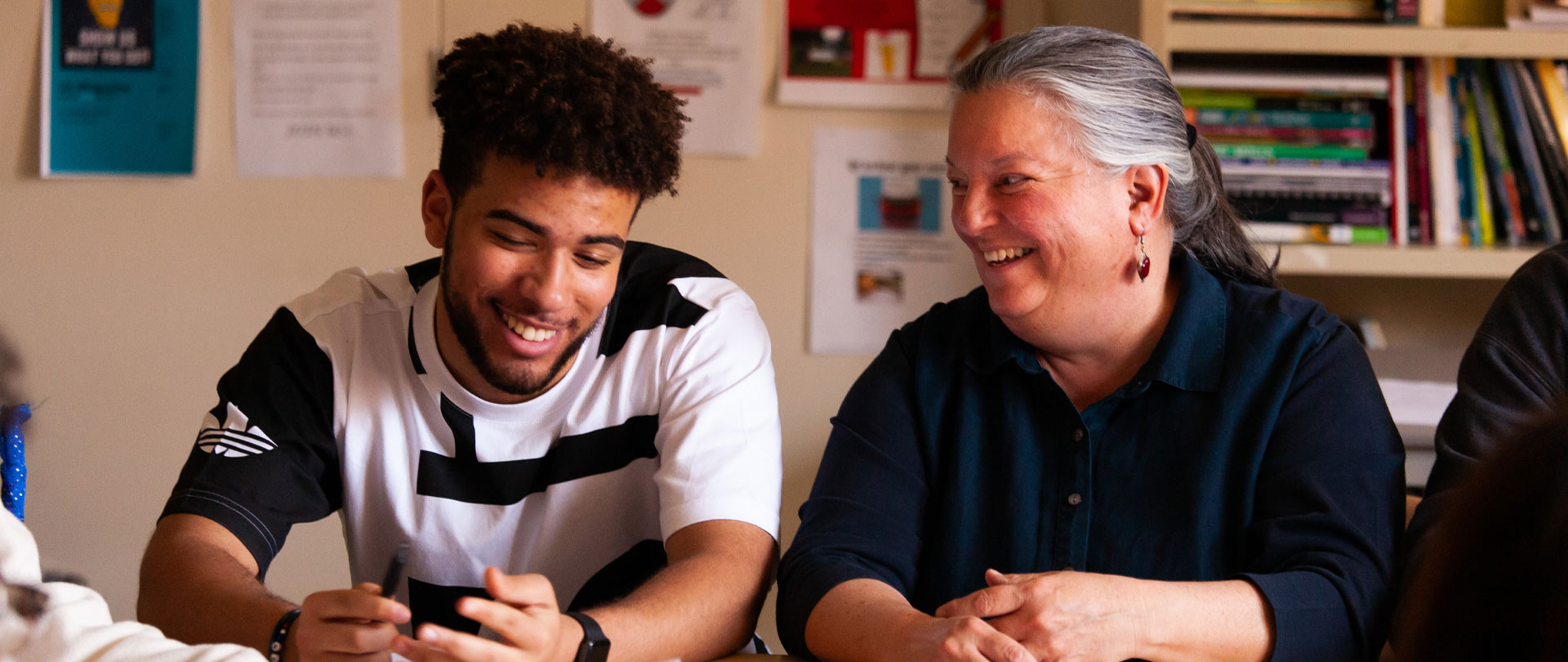 This academically challenging and balanced course of study for all St. Andrew’s students in grades 11 and 12 prepares them for success in college and life beyond.
This academically challenging and balanced course of study for all St. Andrew’s students in grades 11 and 12 prepares them for success in college and life beyond.
Students take courses from six subject groups: sciences, mathematics, language and literature, individuals and societies, the arts, and world languages.
Over two years, students develop both a breadth and depth of knowledge. They are challenged to think critically, rather than simply being able to recall facts. And ultimately, they acquire the type of “soft” skills — such as teamwork, communication, self-motivation, and cultural awareness — that universities look for in applicants.
Pathways to Graduation
At St. Andrew’s, we offer three pathways to graduation. Students work with their teachers and advisors to determine their best-fit pathway.
Students on this pathway take standard-level and/or higher-level IB courses, and meet the credit requirements for graduation. However, they do not sit for external exams assessed by the International Baccalaureate Organization.
Students on this pathway take standard-level and/or higher-level IB courses, meet the credit requirements for graduation, and sit for select external exams assessed by the International Baccalaureate Organization. Students who receive a passing mark on their exams and their courses will receive IB certificates in those courses.
Students on this intensive academic pathway meet requirements for the St. Andrew’s diploma, take 3 of 6 courses at a higher level, other 3 at standard level. They sit for six exams. To get the full IB diploma, they must receive passing marks in all their exams and courses.
The IB CORE
All students, regardless of their path to graduation, participate in the IB CORE, which includes completing an extended essay in a topic of their choosing, a creativity, activity, and service project, and take a Theory of Knowledge course.
Theory of Knowledge (TOK)
A course where students reflect on the nature of knowledge and on how we know what we claim to know.
Through games, collaboration, and investigations of real life case studies, students have an opportunity to think critically about how knowledge grows in each of their subjects: the arts, math, the natural sciences, the human (social) sciences, and history. Unlike other IB subjects, the focus is not on teaching new ideas or content but rather on claims and questions about knowledge. Students have the opportunity to talk about how knowledge is developed, the controversies and perspectives in the development of knowledge, and the ethical constraints of what we can know.
When kids walk away from TOK, my hope is that they are armed with tools that will help them navigate a world filled with a bewildering array of contradictory claims about knowledge and truth.
Amy Tingaero, Humanities Faculty/TOK Coordinator
The Extended Essay
An independent, self-directed piece of research, finishing with a 4,000-word paper.
During their senior year, students complete an independent piece of research on a topic of deep interest, culminating in a long essay. In the process of producing this extended piece of writing, students learn to formulate a research question, engage in a personal exploration of a topic, communicate ideas, and develop a compelling argument. Students are supported throughout the process of researching and writing the extended essay with advice and guidance from a St. Andrew’s faculty member.
The Extended Essay enables students to take a deep dive into a topic that they are really excited about. It might be something they’ve encountered in the classroom or an interest that they haven’t yet had a chance to explore in school. It is also an important opportunity to learn and prepare for college-level writing and research.
Alexandra McMullen, Assistant Head of School for Academics
Creativity, Activity, Service (CAS)
Studied throughout the Diploma Programme, CAS involves students in a range of activities that enable them to enhance their personal and interpersonal development by learning through hands-on experience and collaboration with others.
During the end of their junior year and beginning of their senior year, students undertake a CAS project focused on either creativity, activity, or service — or a combination of all three. For a creativity project, a talented musician could learn a particularly difficult piece, or a different style of playing. A valuable activity project could help a student overcome a personal fear, such as rock climbing. Service projects must be beneficial for the community as well as providing a learning opportunity for the student — such as organizing a children’s book drive for a women’s shelter. Upon completion of a CAS experience or project, students are asked to reflect on what they learned about the topic area, what they enjoyed about the experience/project, and — most importantly — what they learned about themselves and how they respond to challenges.
The CAS program is all about letting students showcase who they are outside of the classroom — whether they love soccer, playing guitar, or serving at their local soup kitchen. It really allows kids to highlight the best parts of themselves that they may not be able to feature in a traditional classroom setting.
Kelsey Shea, Humanities Faculty/CAS Coordinator
Explore the Middle Years Program
International Baccalaureate Website








 This academically challenging and balanced course of study for all St. Andrew’s students in grades 11 and 12 prepares them for success in college and life beyond.
This academically challenging and balanced course of study for all St. Andrew’s students in grades 11 and 12 prepares them for success in college and life beyond.


